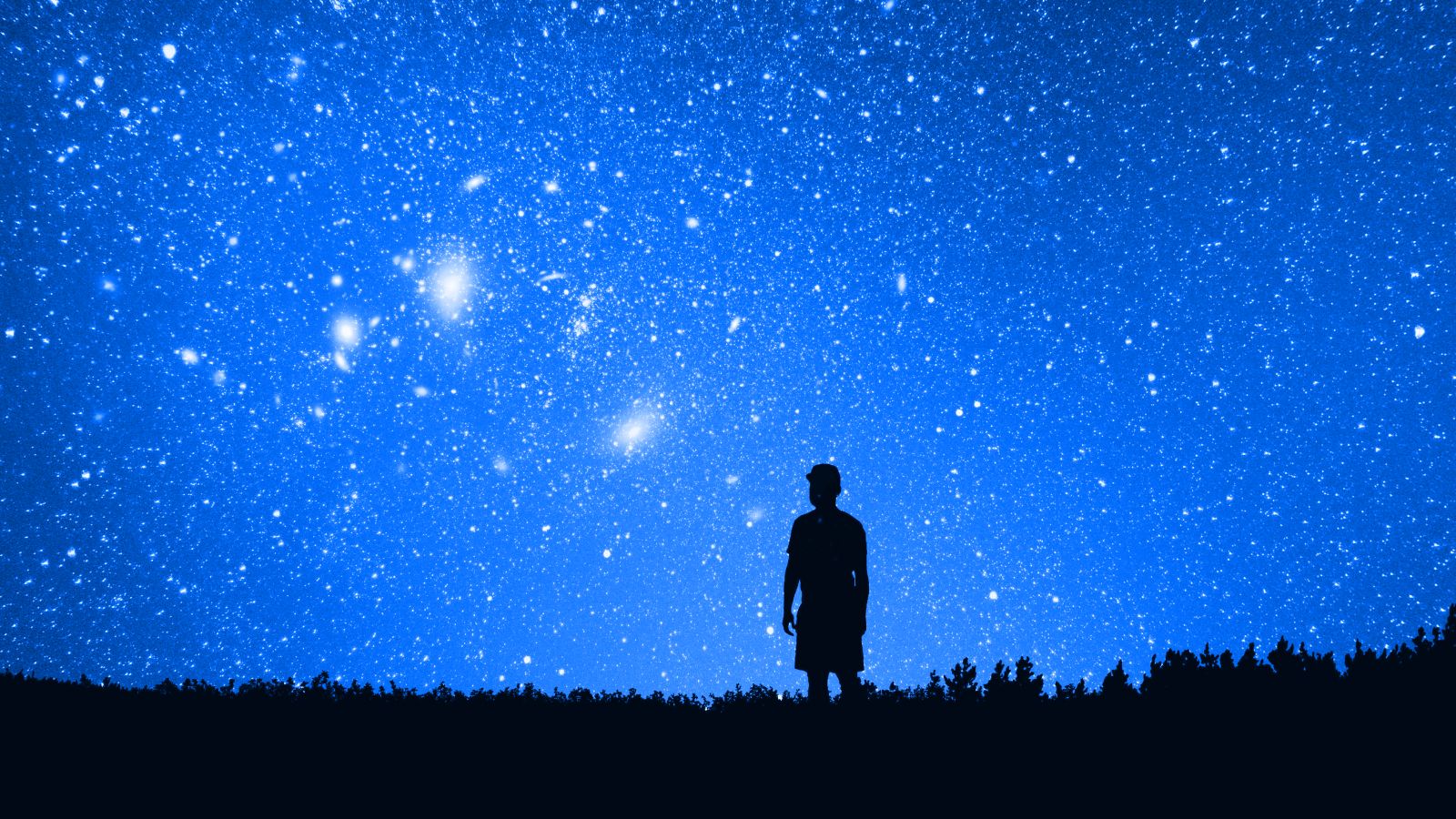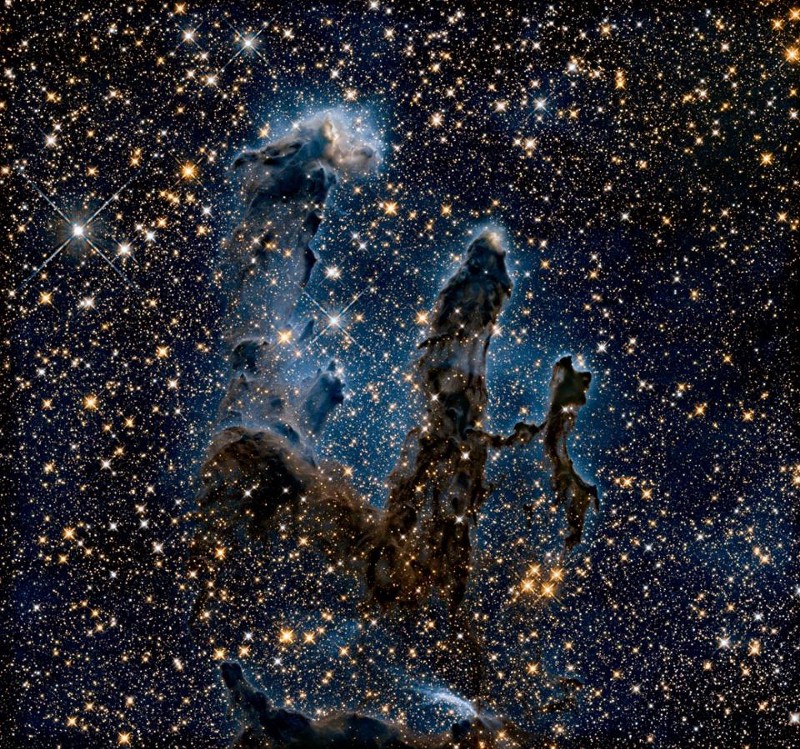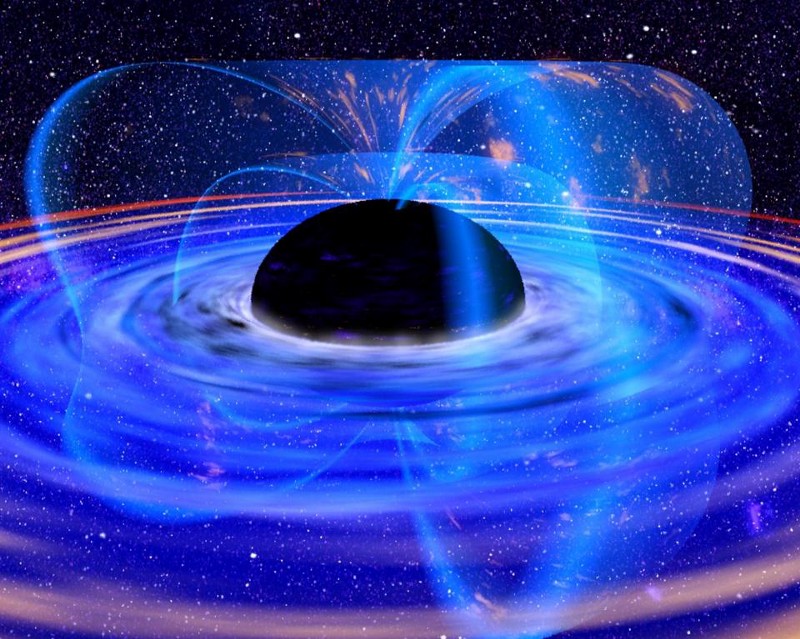Jim Al-Khalili: How our ancient sense of wonder drives physics deeper into the unknown

- Starting with the philosophers of the ancient world, humans began to question whether the natural forces that once seemed so far beyond our comprehension could be explained after all.
- Over the centuries, this movement grew into countless fields of scientific research.
- Although some people view science as a cold, rational exercise, many modern scientists are inspired by the same sense of awe and mystery that our ancient ancestors experienced.
To our earliest human ancestors, the world was a bewildering place. From devastating natural disasters to the countless stars in the night sky, their universe was filled with phenomena that defied explanation.
As humans whose minds worked in just the same way as ours, they must have spent endless hours pondering their place within this mystifying world. They would have asked many of the same questions we continue to struggle with today: Who am I? What is my place in the universe? What is the nature of my sense of self?
To answer these questions, our ancestors filled their world with magic, monsters, and supernatural beings. They told stories about mythical creations that sparked a sense of wonder and mystery about the nature of the universe. Yet not so long ago on the timescale of human history, that all began to change.
From magic to science
Starting with the philosophers of the ancient world, humans began to question whether the natural forces that once seemed so far beyond our comprehension could be explained after all. Over the centuries, this movement grew into countless fields of scientific research.
As we began to uncover the fundamental building blocks of our universe, the need for magical forces to explain what we couldn’t comprehend began to subside. Today, for example, the fields of quantum mechanics and general relativity tell us much about the nature of the matter that surrounds us, from subatomic to cosmological scales.
Yet at the same time, ideas about the magical forces which instilled such wonder in our ancient ancestors still run deep in human culture. This natural sense of awe seems to have led to some unfortunate misconceptions about the brilliant minds who have contributed so much to our understanding of the universe.
“There’s a notion that scientists have this sterile, clinical view of the world, that leaves no room for mystery, awe, or magic,” Jim Al-Khalili, a theoretical physicist and author of The World According to Physics, told Big Think.
From stereotypes in fiction that frame scientists as brashly dismissive of any idea that seems slightly illogical, to groups who view science as an attack on their faith, these ideas remain popular today. But to Al-Khalili, they couldn’t be further from the truth.
“On the contrary, everything I learn about how the world is tells me it’s full of wonder,” he told Big Think. “The idea that Newton discovered that the invisible force pulling the apple down to the ground is exactly the same force keeping the Moon in orbit around the Earth is utterly profound and awe-inspiring.”
To illustrate the wonder that pervades scientific research, Al-Khalili imagines the sum of human knowledge as an island.
“The interior of the island is the well-established science we know very well; its shoreline is the limits of our understanding; and beyond it is the ocean of the unknown.”
The shorelines of our island are constantly expanding outward. But just like the earliest seafarers, there is no way for us to know just how far the ocean surrounding extends, or if it even ends. For physicists like Al-Khalili, the ocean of the unknown is particularly vast.
Beyond the Standard Model
So far, our knowledge of quantum mechanics has culminated in the Standard Model, which aims to describe the nature of the fundamental particles and forces that comprise our universe. The Standard Model can reliably explain the results of almost all experiments that physicists have thrown at it. But we know that these explanations are far from complete.
Among the Standard Model’s most glaring gaps is that it can’t explain the nature of dark matter: the mysterious substance which astronomers claim must account for roughly 85% of all mass in the universe, but whose true nature continues to elude us, despite decades of efforts to detect it.
The Standard Model also can’t explain dark energy, which is the cosmic-scale force that’s thought to be driving the universe’s continuing expansion. Even further, physicists have yet to develop a single unifying theory that can simultaneously encompass the founding principles of quantum mechanics and general relativity.
As physicists delve deeper into these questions, they’re steadily realizing the extent of the discoveries they’ve yet to make; the ocean surrounding our island of knowledge only appears to grow ever more vast.
As we expand the shorelines of our island, Al-Khalili thinks that the knowledge we have gained so far could turn out to be completely wrong, leading to completely new conceptions about the most basic building blocks of our universe.
“One-hundred years from now, I may look back at the Jim of the early 21st century and think I was just as naïve as the medieval scholars who thought the Sun orbited the Earth.”
Interdisciplinary thinking
Yet physicists aren’t the only ones who perceive this expanding ocean. Ultimately, the fundamental phenomena they aim to explain can only go so far toward answering the questions first pondered by our distant ancestors about who we really are, and where we fit within the universe.
Despite millennia of scrutiny by billions of minds, our ocean of the unknown is only growing: a picture that is being repeated time and again across many fields of scientific research. In solving these mysteries, researchers from across the broad scope of modern science are increasingly realizing just how intertwined their fields really are.
Just as Newton first discovered the astonishing link between a falling apple and the orbiting Moon, extending our island further may involve finding links between phenomena we have previously thought of as unconnected. All the same, there is no guarantee that we will ever know how far the ocean surrounding us extends.
For Al-Khalili, if we look back at how far our scientific knowledge has come, and just how far we have yet to go, it’s impossible to claim that science is purely a cold, rational exercise.
“We don’t know if we will ever one day know everything about the nature of reality, and in a way, that’s nice. It’s frustrating but beautiful that we may never have all the answers.”
Far from eliminating the sense of awe and wonder first felt by our distant ancestors, expanding our knowledge of science can only help it to grow. As Douglas Adams once put it, “I’d take the awe of understanding over the awe of ignorance any day.”





